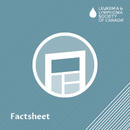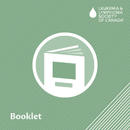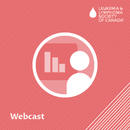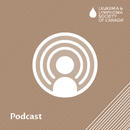Resource Library
Showing 1 to 10 of 320 results
A pediatric blood cancer diagnosis can be overwhelming for young children. They may not fully understand what cancer is, may be required to spend extended time in the hospital, endure discomfort from treatment or experience a loss of normalcy and routine. This illustrated resource is designed to help parents understand the emotional experiences their child…
Learn how to care for skin, nails, hair, and mouth during and after cancer treatments.
This booklet provides a closer look at acute lymphoblastic leukemia in children, the treatments available, and the side-effects your child may experience.
You or your loved one has been diagnosed with a type of blood cancer. Cancer treatment can be complex, with different types of treatment options available for some blood cancers. What are they and how do they work? This fact sheet will help you Learn about the different treatment options available, Understand each type of treatment and how it can help,…
This 1-hour webcast covers the importance of early recognition and intervention, recognizing mental health issues in younger children, age appropriate conversations, how to talk to your child about emotions and mental health, supporting siblings and some of those unique challenges faced by a sibling whose loved one is going through a pediatric blood cancer…
Watch this 1-hour recorded webcast by Dr. Heather Leitch as she discusses myelodysplastic syndromes (MDS), a group of cancers of the blood and bone marrow.
Dr. Leitch is a hematologist at St. Paul’s Hospital in Vancouver, Canada and Clinical Professor in the Department of Medicine, University of British Columbia. Her clinical and research interests…
Dr. Leitch is a hematologist at St. Paul’s Hospital in Vancouver, Canada and Clinical Professor in the Department of Medicine, University of British Columbia. Her clinical and research interests…
In this 1-hour recorded webcast, hematologist-oncologist at the Princess Margaret Cancer Centre in Toronto, and DLBCL researcher, Dr. John Kuruvilla, discusses diagnosis and approach to managing and treating DLBCL, the most commonly diagnosed subtype of non-Hodgkin lymphoma.
It may be the first time you've talked about your blood cancer, since your diagnosis, with anyone outside immediate family, or it may be after years of living with cancer... Either way, the LLSC community services lead in your region is ready to listen and support you in any way you need. Geoffrey Molle, one of those leads, talks about the confidential…
Lymphoplasmacytic lymphoma (LPL) and its related condition, Waldenström macroglobulinemia (WM), are slow-growing subtypes of non-Hodgkin lymphoma.
Palliative care is appropriate for anyone with a serious illness such as blood cancer - regardless of their age, stage of disease, or prognosis. Palliative care is not limited to individuals with non-curative cancer. This type of care focusing on improving your quality of life, is sometimes called holistic care or whole–person centered care.




